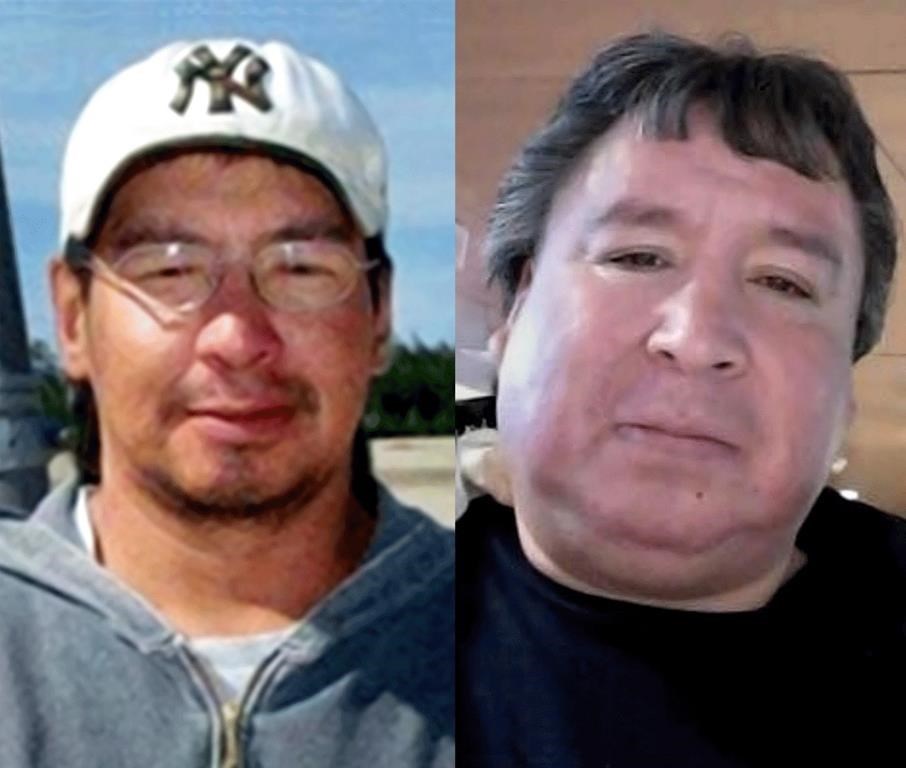A physician with expertise in Indigenous health care told a coroner's inquest Wednesday that she heard stereotypes kick in from the first 9-1-1 call that led to a man being arrested for public intoxication before he died from medical conditions in Thunder Bay police custody hours later.
Dr. Suzanne Shoush testified as an expert witness at the joint inquest into the deaths of Donald Mamakwa, 44, in 2014 and his 50-year-old uncle Roland McKay in 2017. Both Indigenous men died of medical illnesses in cells at Thunder Bay Police Service headquarters after they were arrested on suspicion of public intoxication, and neither was assessed by a doctor or nurse before they died.
Shoush testified about how biases and prejudice based on racist assumptions can cause "malignant narratives" to take over when people interact with certain groups, like those who are Indigenous, appear intoxicated or are experiencing homelessness.
She said she observed that pattern play out in 9-1-1 recordings the inquest heard a day earlier, when an anonymous man called to report that he had seen Mamakwa "passed out" on the steps of a Thunder Bay church.
"It was a malignant narrative from the beginning," Shoush testified in Thunder Bay. "Stereotypes came into play."
Shoush noted that the man reacted with apparent "disgust" when asked if he approached Mamakwa. A conversation between responders on the line who later commented about where the report came in from suggested they held stigma about the area and "disdain" for an alcohol treatment program nearby, Shoush added.
Shoush stressed the importance that people in high-stress, public-facing jobs like policing and health-care are undertake cultural safety training and learn "circuit breaker" techniques to interrupt biases informed by racist and other stereotypes that can affect their decision-making. This can help prevent "catastrophic" outcomes, she testified.
"As we saw in this inquest, the impacts can actually be very deadly. They can actually result in death," she testified.
Earlier in the day, the inquest viewed cellblock footage depicting Mamakwa in the hours before he died that showed him reaching out for help, lying down and struggling to move.
The inquest heard Tuesday that he died from complications of diabetes and sepsis -- a cause of death inquest counsel has said was likely preventable if he had been taken to a hospital, where he would have had a 97 per cent chance of survival.
The footage, which did not have sound, showed Mamakwa at one point reaching his arm out between the bars of the cell, holding a juice box. Inquest counsel said the timing of the clip corresponded with testimony from another man who had been in custody at the time and told investigators that Mamakwa had asked him for a drink but he was unable to help him.
An earlier clip showed a constable dropping off the juice box while Mamakwa was lying on the bed. He used his left foot to slowly slide the juice box towards him, and appeared to drink it while lying down.
Many of clips showed Mamakwa lying down. In others, he was sitting up and rocking back and forth, appearing to breathe heavily, clutching his chest and struggling to stand shortly before he died early on Aug. 3, 2014.
Shoush testified about structural racism in Canada's health-care system stemming from the country's colonial history, and racist stereotypes that Indigenous people face like those related to alcohol use, despite real-world evidence that contradicts them.
Her testimony also touched on how health conditions like sepsis and blood sugar can mimic intoxication and cause a person to have an altered level of consciousness. She said people in that state should be checked in on regularly and cleared by a medical professional.
Families of the two men testified Tuesday about the pain of their losses knowing that they were not taken hospital for treatment.
Shoush said she noted that Mamakwa's family shared that he, like many other Indigenous adults in Thunder Bay, did not have a primary caregiver and he would go to the emergency room when he needed care for his diabetes. This would have left him with no control over his chronic condition and with no reliable source of care or trusted provider to help him prevent the illness from worsening, she said.
The "context and nuance" of the events around him being taken into custody -- that Mamakwa was a visibly Indigenous person -- must be considered when looking at the tragic outcome and trying to find solutions, she added.
"I find it hard to believe that the only problem was a failure to recognize a basic medical crisis," she said.
"It’s that we are not addressing the biases that are unconscious and subconscious."
The inquest also heard an audio recording Wednesday of an interview with a paramedic who said he did not physically assess Mamakwa or take him to the hospital despite the man asking to go.
In the conversation, which was recorded the year after Mamakwa’s death, Rob Corbeil said Mamakwa was already being taken into police custody at the time when the ambulance arrived in response to a “man down” call. Corbeil said Mamakwa said twice that he wanted to go to the hospital, telling Corbeil “I can’t breathe.”
The paramedic said Mamakwa appeared “normal” to him and did not appear to be having difficulty breathing. Corbeil said he told the police officers, “'He doesn’t look short of breath to me,’ or something to that effect.”
Corbeil said he did not physically assess Mamakwa and left shortly after.
“In retrospect, I probably should have done a set of vitals. I could not find a reason to. There was nothing wrong with him as far as I could see,” he said.
This report by The Canadian Press was first published Oct. 12, 2022.
Holly McKenzie-Sutter, The Canadian Press

